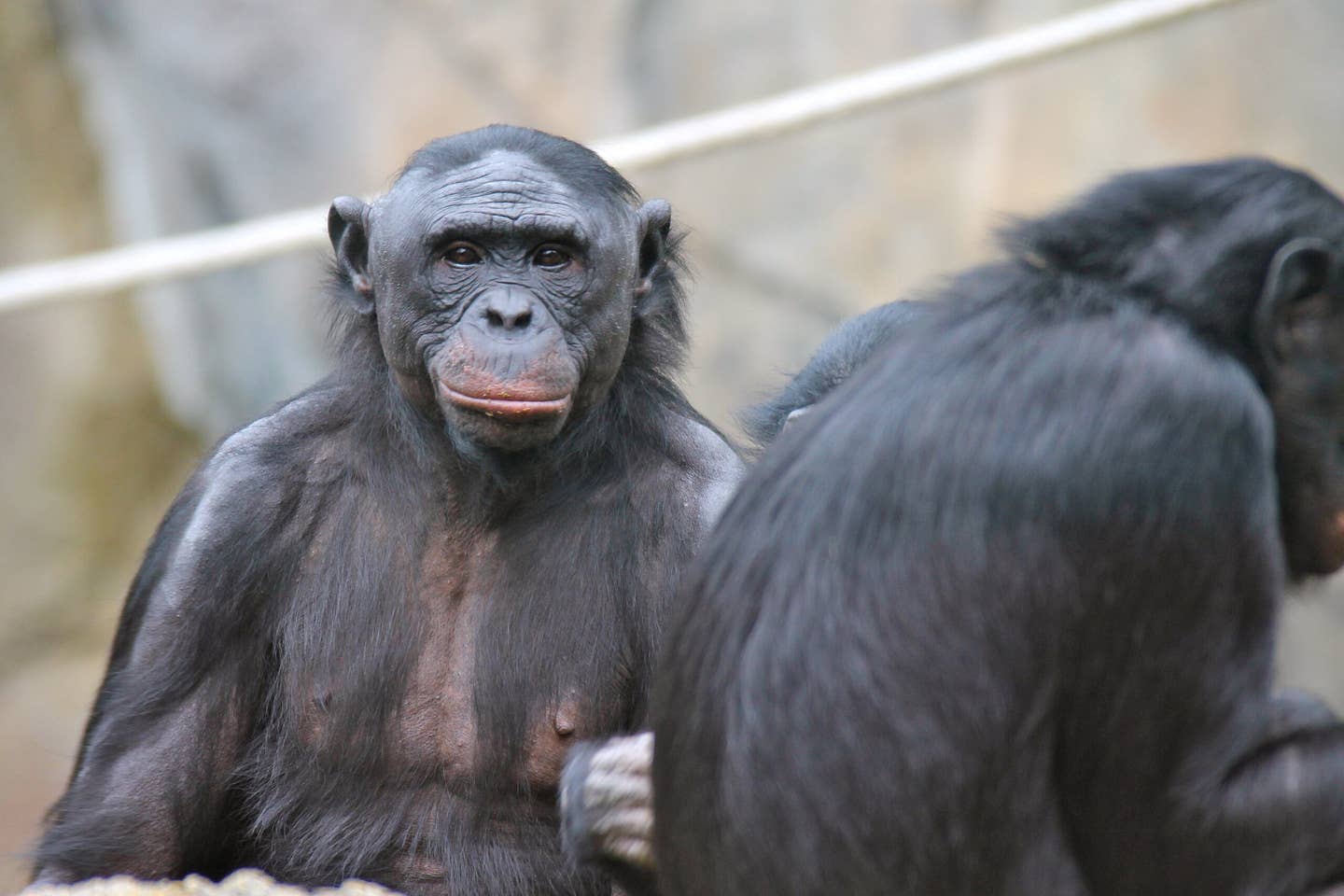Selflessness and feeling in harmony with others coincides with greater happiness, study finds
Experiencing the self as interdependent coincided with increased happiness through feeling greater harmony with others.

[Nov 1, 2021: Beth Ellwood]
Experiencing the self as interdependent coincided with increased happiness through feeling greater harmony with others. (Credit: Creative Commons)
A study published in the Journal of Individual Differences suggests there’s more to happiness than feeling satisfied with one’s life. The study found that experiencing the self as interdependent coincided with increased happiness through feeling greater harmony with others.
It is commonly believed that a person’s happiness depends on their evaluation of their life and their well-being. But study authors Nicolas Pellerin of Toulouse University and his colleagues wanted to explore an alternative model of happiness called the Selflessness/Self-centeredness Happiness Model (SSHM). This approach maintains that selflessness and self-centeredness are two aspects of self-based psychological functioning that carry different consequences for happiness.
“As Westerners, we tend to believe that the sources of happiness are limited to an accumulation of pleasures, resources, the satisfaction of needs or the achievements we reach in life,” Pellerin told PsyPost. “However, the pursuit of pleasures and achievements could diminish the quality and stability of our happiness in many ways, especially when the person is strongly egocentric, that is, strongly preoccupied with their own happiness. Indeed, the more a person craves his or her own happiness, the more unhappy he or she will be when bad things happen and the less satisfied, he or she will be when good things happen.”
“Given the limitation of the egocentric pursuit of happiness, is there another way to achieve qualitative and stable happiness? According to a new model of happiness, SSHM, there are two distinct psychological functioning at the source of happiness.”
Self-centeredness involves the feeling of being an independent and autonomous being. This mindset involves seeking pleasure by maximizing positive outcomes for oneself, leading to fluctuations in happiness that are dependent on external stimuli. On the other hand, selflessness and the feeling of being interdependent promotes lasting happiness, since one’s happiness is no longer dictated by external events. It has been proposed that selflessness gives rise to feelings of harmony, inner peace, and what is called “authentic-durable happiness.”
“This model has been validated, but most often in the laboratory or with questionnaires that do not capture the quality of everyday experiences,” Pellerin explained. “In our study, we used a methodology that allowed us to observe fluctuations in the level of altruism and happiness in daily life. To do this, we sent text messages to individuals 5 times a day for two days that invited participants to answer short questions about altruism and happiness.”
The researchers decided to test the SSHM, by capturing people’s moment-level perceptions of happiness, selflessness, and harmony. Over a period of two days, a sample of 64 adults completed short questionnaires five times a day via their smartphones. The sample consisted of adults between the ages of 18 and 62, the majority of whom were women (81%) and French.
Related Stories
Two separate items asked participants to indicate the extent that they felt inner peace and contentment (authentic happiness). Two items assessed feelings of being in harmony with others and of being in harmony with themselves (feeling of harmony). Finally, three items assessed feelings of oneness, perceived body boundaries salience, and connection with others (selflessness).
First, it was found that all three variables — authentic happiness, feeling harmony, and selflessness — were positively related. Next, it was revealed that higher selflessness predicted greater happiness. That is, the more a respondent reported feeling selfless, the more happiness they tended to report, too.
Feeling in harmony with others also positively predicted happiness. Moreover, harmony explained 86% of the total effect between selflessness and happiness, which was no longer significant once harmony was taken into account.
Pellerin and his colleagues say that their findings largely support the SSHM, revealing that selflessness is positively associated with happiness and that this effect is driven by feelings of being in harmony.
“This study shows that there is a link between the way the experience of selflessness and happiness,” Pellerin told PsyPost. “In simple terms, seeing ourselves to be separated from others and our environment (i.e., the experience of self-centeredness) was linked to lower happiness, whereas seeing ourselves to be closely linked to other and the world (i.e., the experience of selflessness) was linked to higher happiness. It also appeared that when individuals experienced selflessness, they felt a sense of harmony with other and themselves.”
“Our analyses suggest that it is this increased sense of harmony that explains the link between selflessness and happiness. In other words, the more we experience selflessness, the more we experience feeling of harmony which contribute to our happiness. Our study supports the idea that not only pleasures and accomplishments are important for happiness. One of the keys to happiness could be the way we relate to the world and to others, whether this is done with a feeling of connection of separation.”
However, since the study design does not allow tests of directionality, the researchers note that it cannot be assumed that selflessness leads to greater happiness. It could be that harmony is positively influencing both selflessness and happiness, or that a fourth variable is influencing all three variables. For example, better resources might lead to greater happiness and also lower self-centeredness, since people with a large number of resources would not feel the need to act selfishly to acquire more. The study authors propose that future studies should attempt to uncover the temporal ordering of these variables to shed light on causality.
“If we look closely, the results from our study might be interpreted in two ways. Is that selfless people that are happier than self-centered people (between-person level)? Or is that temporary changes in selflessness within an individual which is linked to happiness (within-person level)? It is impossible with our analyses to know whether the relationship holds at the between-person level, the within-person level, or both,” Pellerin explained.
“Moreover, we did not test whether selflessness was associated to a stabilization of happiness. To answer all this, we have launched a similar study with much more observations per individual (the study is currently under review). Overall, the results of this are consistent with our hypotheses, with selflessness linked to higher and more stable happiness, both at the within- and between-person levels. All these results tend to support the idea that it is possible to experience high and stable happiness other than through pleasure seeking and pain avoidance.”
Despite certain limitations, the findings suggest that happiness does not simply depend on one’s life satisfaction. Rather, happiness is also shaped by the extent that one feels interdependent and in harmony with others.
“The study of harmony-based type of happiness versus satisfaction-based is in its infancy,” Pellerin noted. “Much more studies will be needed to better understand exactly how happiness is produced in our minds. We hope that this work will inspire future psychotherapeutic development and help people to reach high and stable happiness despite adversity and to promote a more peaceful and serene society at large.”
The study, “Selflessness and Happiness in Everyday Life: An Experience Sampling Method Based Study”, was authored by Nicolas Pellerin, Eric Raufaste, and Michaël Dambrun.
Like these kind of feel good stories? Get the Brighter Side of News' newsletter.
Tags: #New_Discovery, #Good_News, #Selflessness, #Happiness, #Emotions, #Research, #Science, #The_Brighter_Side_of_News



